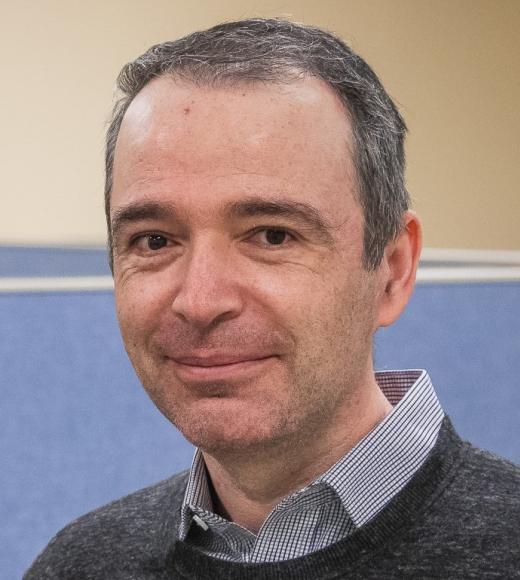


Abstract: In this talk, we will explore the maker culture and its relationship with open source and collaboration practices. We will visit the makerspaces, where people get together to share and materialize their ideas. We will showcase large collaborative makar projects and small ones with large potential. Last but not least, we will inquire on what makes the maker approach different from other practices in open (source) cultures.
Short bio: César García Sáez is peaker and researcher specialized in digital fabrication and the Internet of Things. Host at La Hora Maker, a podcast in Spanish focused on Maker Movement and digital fabrication. Co-founder of Makespace Madrid. Madrid Mini Maker Faire organizer. Exhibitor and speaker at European events like European Maker Faire, FabFestival (Toulouse). Speaker at international Fablabs meetings at Barcelona, Boston and Shenzhen. Appointed by COTEC Foundation, focused on Innovation at a national scale, as Expert in 3D Printing for Societal and Economical impact.

Abstract: Majority of open source software projects become abandoned, especially the smaller and younger ones. To increase their chances of success, some OSS projects join software foundations which provide common frameworks and talent pools. Some, like the Apache Software Foundation have successfully facilitated this for many years. To understand OSS project abandonment and collaborative success, we assembled an interdisciplinary team encompassing software engineering, communication, and institutional governance. In this talk I will present the approaches and findings from 3 of our recent studies of Apache Software Foundation projects.
To study how projects within the ASF, and especially in its Incubator, sustain communities that build high-quality products, we started from theories of socio-technical systems and institutional design. Through those prisms, in our studies we examined the ASF documentation, mined digital traces, and gathered data directly from participants in ASF projects and the Incubator. In the first study we used AI methods and digital traces of emails and commits, to formalize an instantaneous graduation probability for each project. We found that we can predict graduation from the ASF Incubator with 90% accuracy within the first 8 months. In the second study we compared code quality and development processes between sustainable and unsustainable projects. We found that projects with code of medium complexity and many large functions are more likely to be sustainable while projects consisting of many files of very large size and a high percentage of code duplication are less likely to graduate. The third study looked at the focus of project discussions and found that projects that more frequently discuss governance are more likely to graduate from the Incubator. Finally, we built a public tool: https://ossustain.github.io/APEX/, that can allow project self-monitoring and just-in-time advice to projects.
Short bio: Vladimir Filkov is a Professor of Computer Science at UC Davis. He specializes in retrospective analyses at the intersection of Software Engineering and Data Science, with emphasis on OSS team and software effectiveness. WIth his team at DECAL lab and collaborators across the world, he has published more than 100 papers, many in top SE venues like ICSE, FSE, ASE, and ESE. His papers have won 6 best paper/distinguished paper awards and 2 test of time awards. Prof. Filkov is a distinguished member of ACM. He will serve as the General Chair of ASE 2024.

Abstract: OSPOs (Open Source Program Offices) face many challenges, such as ensuring high-quality and frequent releases, engaging with developer communities, and contributing back to other projects effectively. The TODO Group is a place to share experiences, develop best practices, improve OSPO research and work on common tooling to overcome these challenges.
Short bio:Ana is the OSPO Program Manager at the TODO Group, a Linux Foundation project and an open group of practitioners and organizatiobs who want to collaborate on best practices, tools, and other ways to run successful and effective Open Source Projects and Programs. Formerly she worked at Bitergia, a Software Development Analytics firm, and she has recently finished her MSc in Data Science, whose final thesis focused on measuring DevRel’s success within Open Source development communities. Ana is really interested in Open Source, InnerSource, and community metrics. She has been a speaker at some international conferences such as GitHub Universe, FOSSBackstage Berlin, Open Compliance Summit Japan, DevRelCon Tokyo, OpenInfraDays, DevRelCon London, ISC Summit or OSSummit (Japan, Europe and NA). During her spare time, you can find Ana practicing yoga or illustrating.